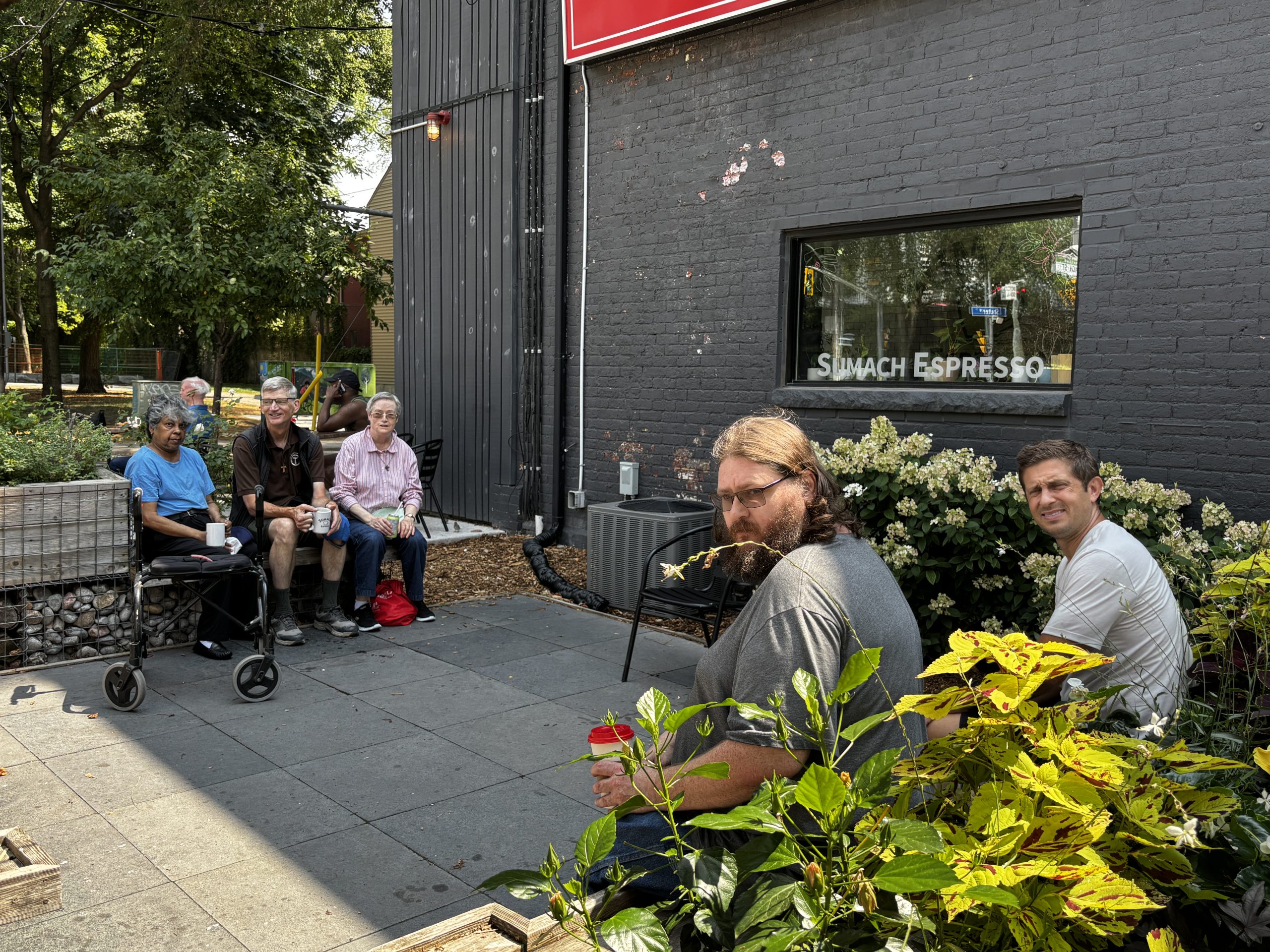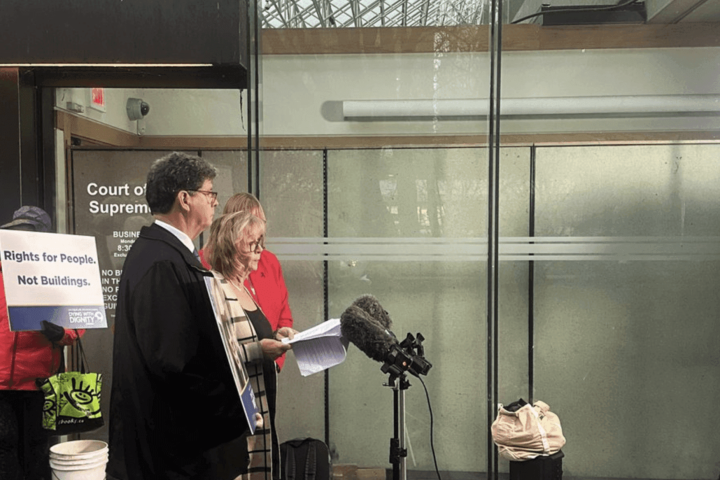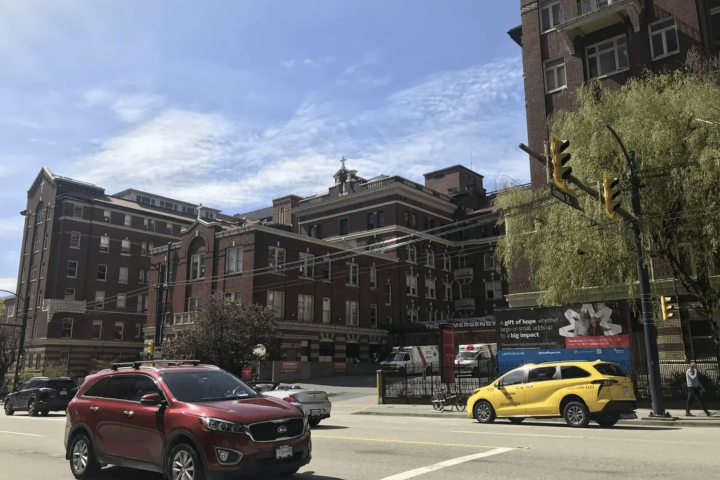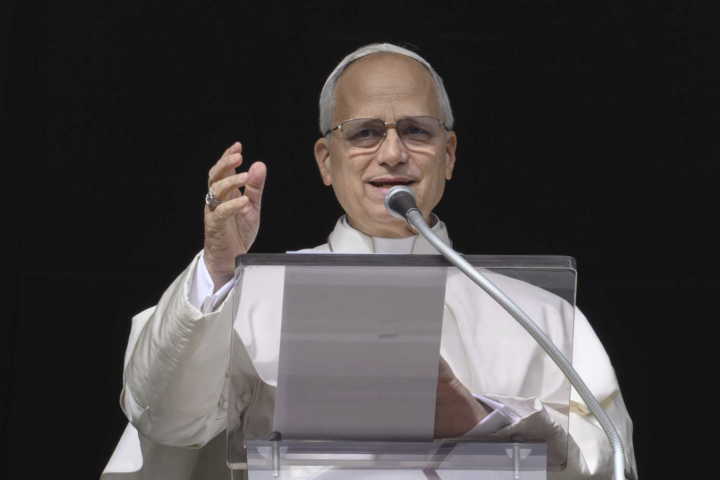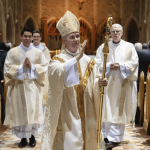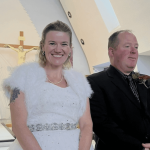TORONTO (CCN) — In a city where homelessness has more than doubled in the past four years, an oasis in Toronto’s downtown east side strives to embody what St. Francis called “Poverello” — the poor little man.
Poverello Charities, run by Franciscan Capuchin friars, provides family for people experiencing homelessness and mental illness, fostering a sense of community and belonging, said Father Peter Poel, its Capuchin director.
“When life’s most essential needs — love and belonging — are met, mental illness can begin to heal,” said Father Poel.
He sees the mission’s work as a living response to Pope Francis’ appeal in his 2020 encyclical “Fratelli Tutti,” in which the pope urges people to help those on the peripheries of society.
Toronto’s 2024 Street Needs Assessment report revealed that more than 15,400 people were homeless in the city as of October 2024, more than double the roughly 7,300 in spring 2021. Forty-four per cent of surveyed individuals cited mental health concerns as a primary contributor to losing housing, with 64 per cent reporting one or more health challenges, including illness or substance use.
Against this backdrop, Poverello Charities offers a small but steadfast light, said Sara Ann, a resident.
“Poverello mission is a very supportive community,” said Sara Ann. “I love staying here. Everyone gets along well. I feel they are providing excellent service to people who are living with limited income.”
The Poverello mission among people struggling with mental illness began in 1969 with Capuchin Father Joe MacDonald, later developing from street ministry to residential communities. Father MacDonald died in 2018.
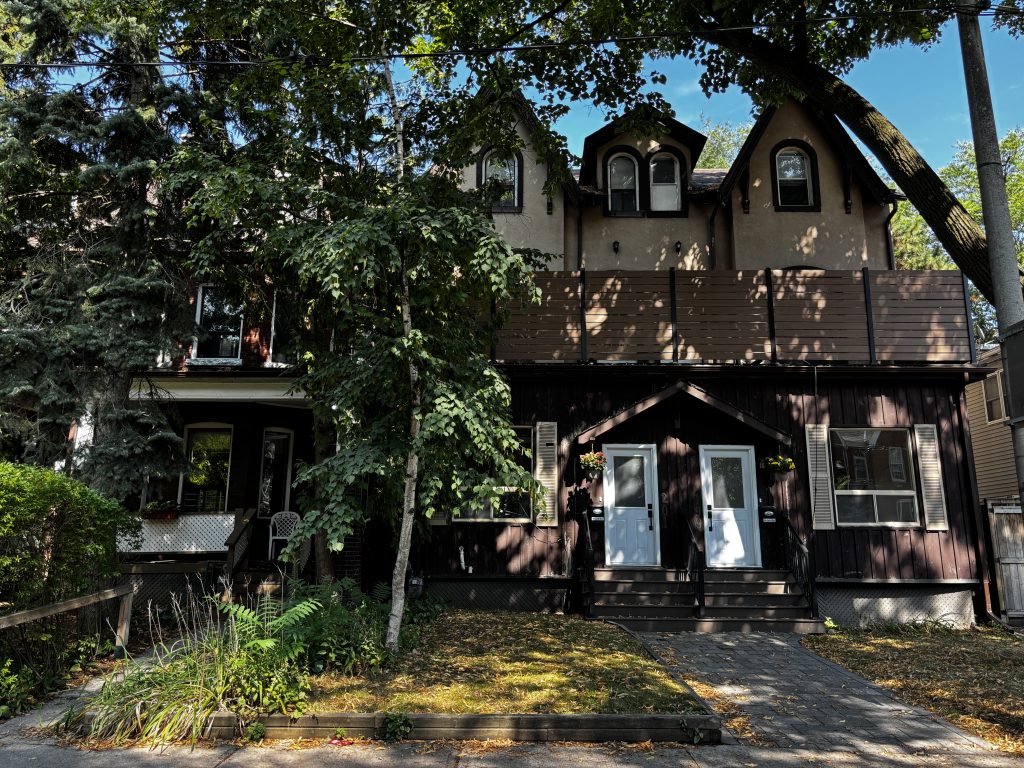
Father Poel said Poverello “focuses on keeping Jesus at the centre of its work. Presently, it operates four homes on Berkeley Street, providing a safe place to live and a sense of belonging for people living with mental illness.”
Often, homeless people with mental illness are sheltered temporarily, then left without adequate housing or follow-up care, he said. Poverello tries to integrate these people into long-term communities. Isolation worsens mental illness, and recognizing this prompted Father Poel to move from direct street ministry to creating drop-in centres, and eventually to establishing permanent homes.
“The mission aims to deinstitutionalize the structure itself and build community life,” Father Poel said.
“I’m still not quite sure how he managed it, but Father Joe was able to purchase four homes right next to each other. They’re not too small, not too big, just enough space for community.”
One of the homes houses women, while the other three are for men. Each resident has a bedroom and shares common areas, such as a front deck, atrium and dining room. Meals and prayer anchor daily life: Residents gather for supper Monday through Friday in the dining room, followed by evening prayer. Other meals are typically eaten in the smaller residences.
Currently, the mission houses five women and 10 men. After the completion of renovations later this year, capacity will grow to 18. Most residents are referred by social or case workers, and admission focuses on whether a person is open to community living. While residents are not required to join in all religious activities, openness to the community atmosphere is essential. Professional support for mental illness and other needs is offered by outside providers.
“Sometimes conflicts arise,” Father Poel admitted, “but when one person is struggling, the others can be a support.”
The mission’s staff includes a managing director, cook and maintenance workers, and all are valued for their skills and ability to connect with residents, Father Poel said.
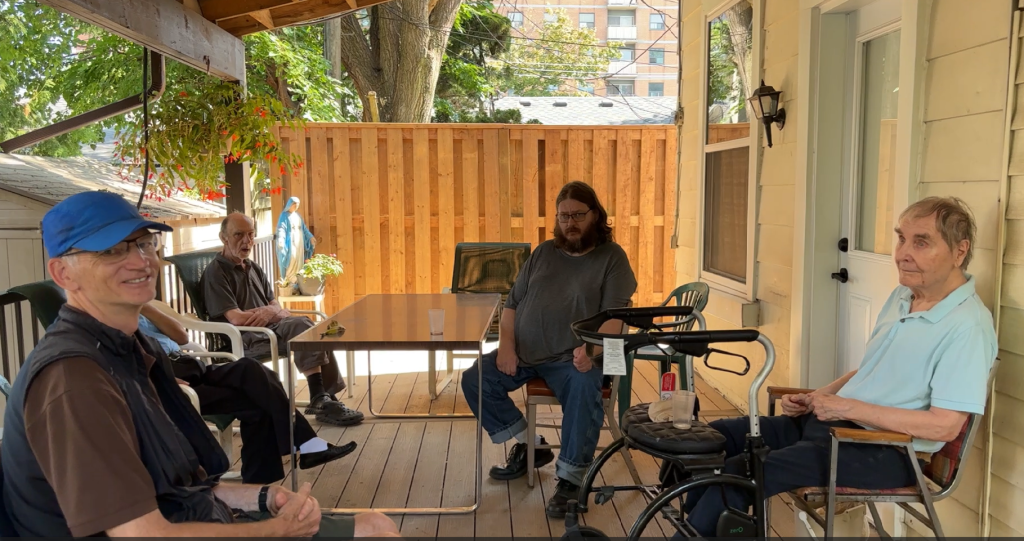
Volunteers are also integral. “There’s a couple, Martin and Gail, who come every Wednesday,” Father Poel said. “They join us for Mass and lunch, then we do something together — walks, coffee, cards, crafts. It’s wonderful to have friends like that.”
Professional caregivers provide specialized care onsite when needed. Friends of the community contribute friendship, prayer and financial support. Poverello Charities receives no government funding — a choice that safeguards its Catholic identity but also presents ongoing fundraising challenges, especially with the rising costs of maintaining aging buildings.
While rooted in Catholic tradition, Poverello Charities welcomes residents of all faiths.
Father Poel shared the stories of two residents.
Thomas, after losing his parents, faced homelessness as a person with mental illness before finding stability and belonging at Poverello. Irene O’Malley, a university graduate, saw her life “crumble” under the weight of mental illness. Having once served alongside Father MacDonald in street ministry, she is now a faith-filled leader within the community.
“I’ve been living at Poverello Charities Community for the last 30 to 35 years or so,” O’Malley said. “I came in 1992, and I’ve always found it a very welcoming and encouraging place. There’s always someone around to talk to when you need it, so you never really feel down for too long.”
Father Poel has a vision for Poverello that he hopes will extend beyond its four residences.
“We’re a sign, not a solution, to the broader issues of homelessness and mental health in Toronto,” he said.
“But we hope to inspire others to create circles of care for people with mental illness, whether in parishes, families or neighbourhoods, so that the burden doesn’t fall on just one person, or worse, leave someone completely isolated.”
Father Kiran Monis, ofm cap, is s currently studying social communications at the Pontifical Gregorian University in Rome. He produced this report onsite as part of the God in the City Catholic journalism seminar in Toronto.


